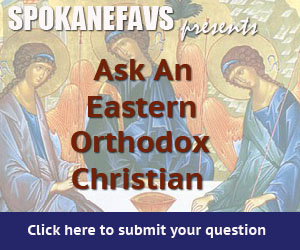What would you like to know about the Eastern Orthodox Christian faith? Submit your question.
When I Googled “Orthodox Church Spokane,” I notice that the search resulted in a variety of “Orthodox” churches. There are Greek, Russian, Antiochian, and others. What am I missing? How can each of them claim to be “orthodox” when they’re all different churches?
To begin with, they are “all the same church,” the Eastern Orthodox Church. What may be confusing is the preceding jurisdictional heading or title in each one of those territorial governing bodies.
So when we refer to Greek Orthodox, Russian Orthodox, Antiochian Orthodox, Alexandrian Orthodox, and Jerusalem Orthodox, we are indicating that the first word in each title applies to a jurisdictional see, not to ethnicity, and the last word “Orthodox” implies the Eastern Orthodox Church.
In the early Church, a “see” was a major area of jurisdiction and in the first 1000 years of Christianity there were five historic patriarchal sees (centers) known collectively as the Pentarchy — four Eastern Orthodox Sees consisting of Jerusalem, Antioch, Alexandria, and Constantinople and in the west the See of Rome, which in 1054 left the other four sees, marking the official beginning of the Roman Catholic Church.
In later years, through missionary efforts, other jurisdictions were founded and added to the Eastern Orthodox Church as in the churches of Russia, Greece, Serbia, Romania, Bulgaria, etc. All of these sees are in full communion with one another and continue to be united in faith, doctrine, Apostolic tradition, sacraments, liturgies, and services as one, holy, catholic (universal), and apostolic church not adding to, altering of, or subtracting from the original faith given to us by Christ and the Apostles.






